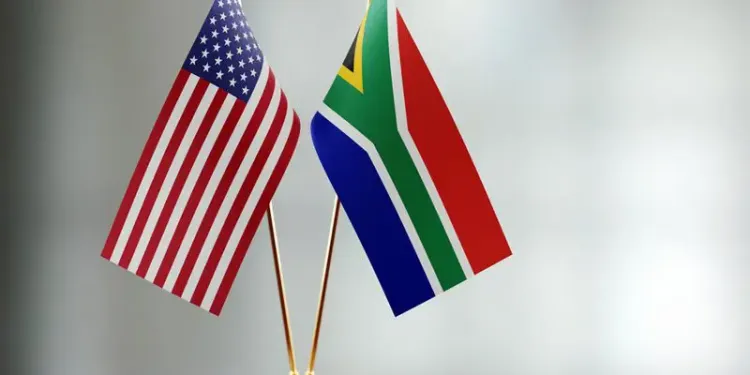
South Africa is taking a measured approach following the US decision to impose sudden import duties on South African vehicles and auto parts. Instead, South Africa relies on its diplomacy, trade diversification, and its status as a major global exporter of key minerals. Most of them are not affected by the new tariffs. Pretoria has ruled out retaliation and instead prioritizes diplomatic engagement and long-term trade diversification.
Parks Trade Minister Tau confirmed that South Africa is seeking consultations with US authorities, with the implications of new tariffs, including blanket rates for imported vehicles, and consultations that include up to 30% of certain components.
Limited hits
The US is South Africa's third largest trading partner, but accounts for less than 9% of total exports. Additionally, while the latest tariffs target vehicles and auto parts, many of South Africa's biggest exports to the US have been explicitly excluded.
According to the White House's published list of tariff exemptions (see the full list of exempted items here), South Africa's exports of Platinum Group metals, gold, manganese, nickel, basic metals such as copper and zinc, coal products, and certain chemicals and wood products.
This is because mining goods represent more than half of total exports to the US in 2024 alone, according to World Integrated Trade Solutions.
South Africa has exported US$3 billion worth of pearls, valuable stones, metals and more than $506 million in steel and steel to the US, making way for the American market. Nickel exports to the US were valued at $50,307.920.
As the world's largest producer of platinum, manganese ore and chromium, South Africa holds a strategic position in the global supply chain. The US appears to recognize that it will protect their imports from disruption.
Impact of the Automotive Sector: Localized but manageable
The main concern remains South African automobile exports, particularly from the Eastern Cape. In 2024, the country exported slightly more than US$1.4 billion worth of vehicles other than railways, and trams 711 to the US are currently subject to 25-30% tariffs.
However, analysts and government officials have emphasized that the automotive industry is globally integrated and already diversified. The vehicles assembled by South Africa are increasingly doomed to Europe and emerging markets in Africa and Asia. Tariffs pose challenges, but they do not threaten the survival of the sector.
No relief or emergency assistance has been announced, but state leaders and industry stakeholders are debating the potential mitigation strategies.
Diploma first
Trade Minister Parks Tau confirmed that Pretoria will not respond with its own tariffs. “We believe in constructive engagement and we are looking for discussion with US authorities,” he said, emphasizing that South Africa continues to cherish trade partnerships even amidst policy changes.
National Treasury reflects this approach and points to internal modelling that demonstrates limited national impact. Projections suggest a reduction of GDP by less than 0.1 percentage points in the baseline scenario, and in the worst case, a reduction of up to 0.7 percentage points. Both are manageable in South Africa's broader macroeconomic environment.
Agriculture feels pressure, but growth is promising
One sector exposed to price increases is agriculture, and new tariffs could affect exports of fruit, wine and food in South Africa. However, this is due to an increase in agricultural exports, especially in citrus fruits.
Industry experts believe that US buyers may face higher prices, but demand for premium produce in South Africa is unlikely to collapse. Growers also increased exports to Europe, the Middle East and Asia, creating a broader customer base and reducing excessive reliance on the US market.
Strategic Trade Positioning
South Africa's diplomatic and economic stance is supported by the export of resources and the strength of diversified global trade. The country remains:
The largest global exporter of platinum, manganese and chromium. Top 10 exporters of gold, coal and iron ore. The main regional supplier of components and manufactured goods under the African Continental Free Trade Area (AFCFTA).
In addition to China and the EU, South Africa is increasing its footprint in markets such as India, Brazil, the Gulf countries and Southeast Asia. These relationships are actively expanded by agencies such as the Bureau of Trade, Industry and Competition.
South Africa's response to US tariffs is part of confidence. By refusing to retaliate, prioritizing diplomacy and relying on its mineral and manufacturing strengths, the country has established itself as a stable and practical trading partner in a fragmented world economy.
Sectors such as automobiles and agriculture need to adapt, but the underlying message is one of resilience. South Africa is still open to business.


